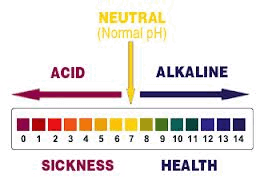pH Test Procedure
This information was sourced from Natural Cures.

Personal responsibility for health has become a popular maxim for the 21st century. We are beginning to implement proactive approaches for health rather than simply reacting to disease. Along the way we are adopting a new perspective – that disease is unnecessary.
For too many years, we, as a nation, have had a tendency to leave the responsibility of our health to others. The general attitude has been, “I’ll just do what I want and let the doctor fix me if something goes wrong.” Our health care has been remedial; we wait until a problem crops up, then try to remedy it. We have proven that this system doesn’t work. It’s too painful for our bodies, too disruptive to our lifestyles, and too hard on our personal and national wallets.
With the dawning of a new century, we also have the dawning of greater personal responsibility for our own health. That’s why checking pH – the acidity or alkalinity of your urine and saliva – will become as routine as checking your weight, credit card balance, or smoke alarm. Why? Because keeping tabs on your pH gives you an inside look at your health. Keeping track of your pH levels is an opportunity, once you understand the results, to work with your diet and lifestyle and take health into your own hands.
For our purposes, we define pH as your potential for health. pH monitoring reveals your body’s ability to handle your diet and lifestyle, alerting you to potential problems before a disease sets in. Diagnosing and curing disease are reactive, whereas monitoring is proactive. The objective of pH monitoring is to find out if your diet and lifestyle are giving your body a fighting chance to be healthy.
This pH guide explains how to check the pH of readily accessible body fluids – urine and saliva – interpret the results, and formulate an appropriate plan of action for your pursuit of health.
We will begin with the basic whats and whys of pH, then move into the how-to and what-does it-all mean.
Note: The concepts presented here are not intended to be used as a substitute for competent professional health care. They are to help you recognize clues that your body is being overstressed by your diet and lifestyle. Part of taking responsibility is to seek good professional care when you need it.


